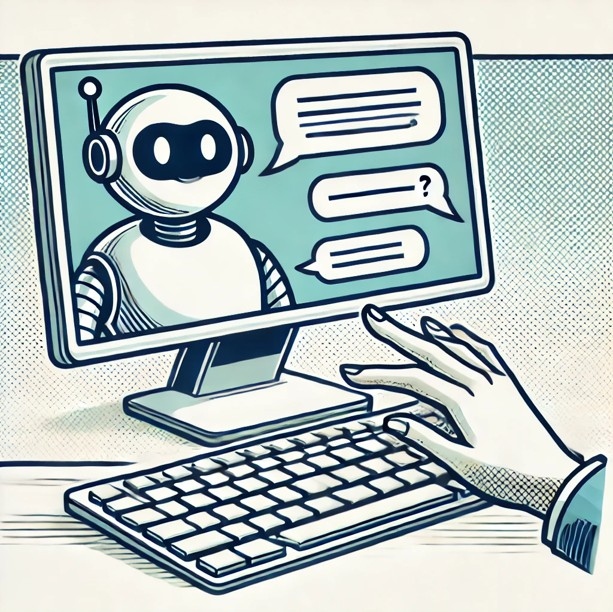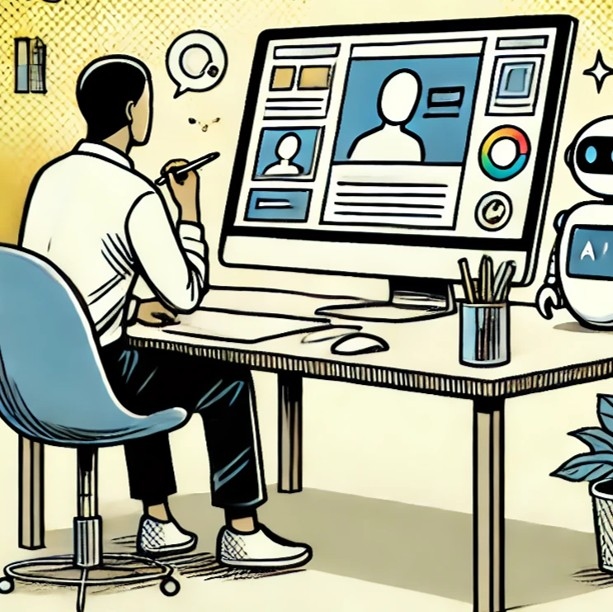The human-centered systems lab (h-lab) headed by Prof. Dr. Alexander Maedche at the Institute for Information Systems (WIN) focuses in research, education, and innovation on designing human-centered systems for better work and life.
Our mission is to create impactful knowledge to design human-centered systems for productivity and well-being through relevant and rigor scientific research. We build on (generative) artificial intelligence (AI) and biosignal sensor technologies in our research and follow a human-centered design process. We pursue a socio-technical research paradigm and combine empirical and design science research.
We contribute to the fields of human-computer interaction (HCI) (Mensch-Computer Interaktion) and information systems (IS) (Wirtschaftsinformatik). We believe that delivering cutting-edge knowledge and inspiring education, as well as an ongoing dialog with the public need to go hand in hand to maximize the impact of our work in organizations and society.
%20Remote%20Meeting%20Systems%e2%80%9d%204x3_rdax_98p.jpg)
On February 18th, Prof. Mädche gave a lecture at the Research Group in Information Systems (GReSI) at HEC Montreal, Canada. In his talk he presented insights from current research focusing on multitasking in remote meetings done in collaboration with Dr. Julia Seitz and Chiara Krisam in the context of the DFG-funded KD2School.
Multitasking during remote meetings is highly prevalent, as meeting participants frequently divide their attention between meeting-related and -unrelated activities, such as responding to emails.
More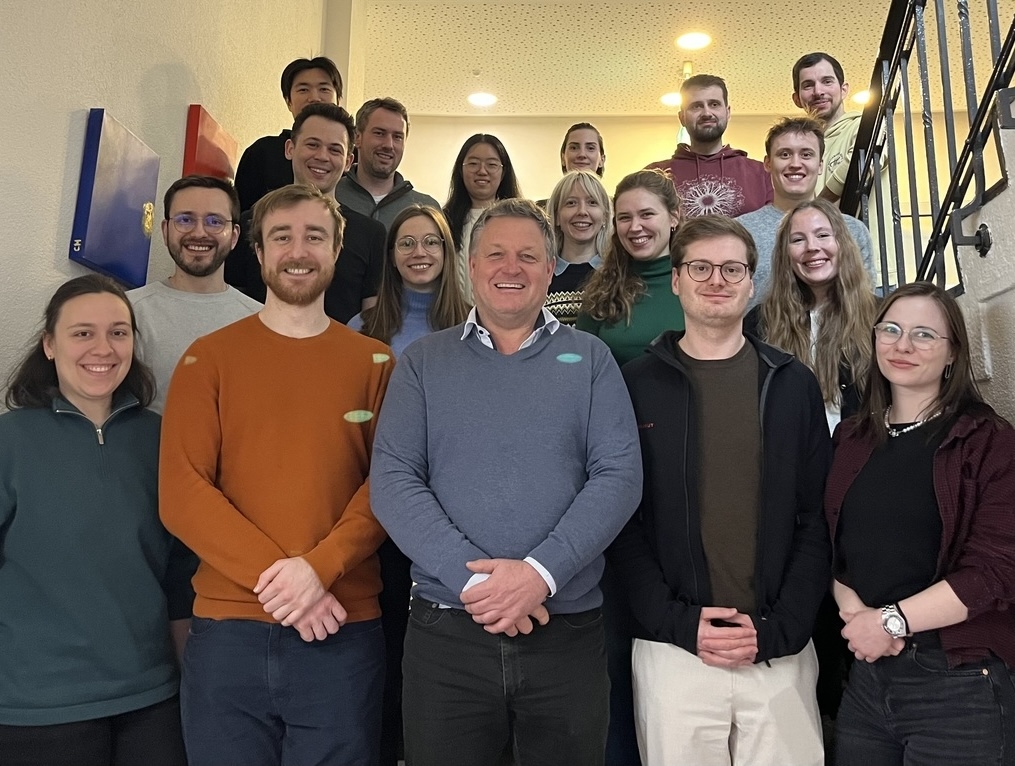
The advertised doctoral student position at the human-centered systems lab (https://h-lab.win.kit.edu/) headed by Prof. Mädche focuses on designing AI-based learning companions that promote skill development for an effective collaboration between humans and agentic artificial intelligence (AI). In particular, new approaches will be conceived and evaluated that support the development of interpersonal and social skills, as well as critical reflection skills, when using agentic AI. The research project will consider both students and employees in companies. The team projects in the B.Sc. programs in Industrial Engineering & Management, Digital Economics and Information Systems serve as concrete research cases within the curriculum. Further information is available here.
More
On February 10, 2026,
students participating in the M.Sc. lecture Engineering Interactive Systems: AI & Wearables offered by Dr. Martin Feick and Dr. Felix Kretzer from the human-centered systems lab presented the results of their capstone projects projects in the KD2Lab. The capstone project was carried out in cooperation with Visualvest GmbH, a fintech subsidiary of the Union Investment Group. Students leveraged Polar H10 wearable chest strep to capture heart activity in the form of heart rate variability features, analyze and recognize stress levels and on this basis design an biosignal-adaptive investment banking app prototype extending the existing Visualvest mobile app.
More
Dr. Rainer Hoffmann
from EnBW gave an industry talk in our bachelor lecture “BWL | Information Systems”
on February 2nd, 2026. In his talk, he gave deep insights into the data and AI strategy of EnBW including the building blocks of vision, use cases, data & infrastructure, compliance & governance, upskilling, and strategic partnerships. EnBW (Energie Baden-Württemberg AG) is one of the largest energy supply companies in Europe, headquartered in Karlsruhe.
More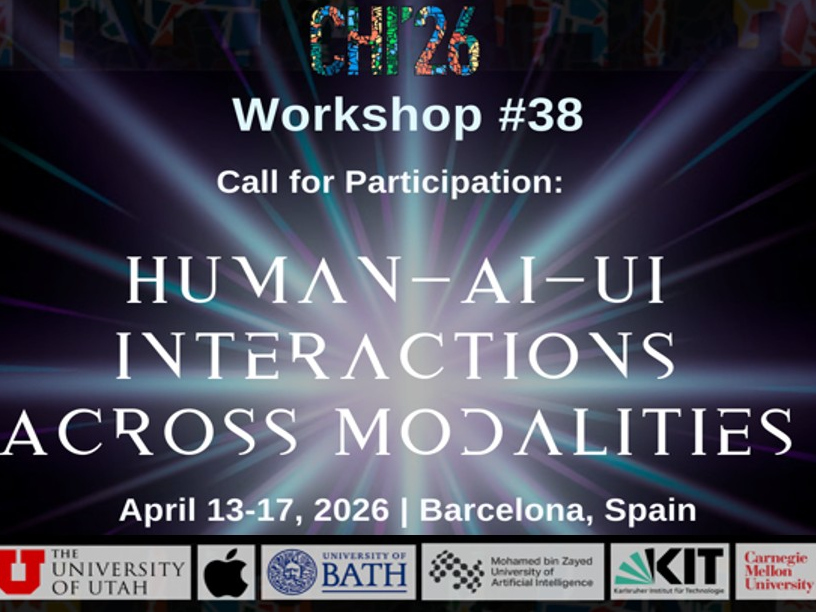
In this CHI 2026 workshop we bring together researchers from different sub-disciplines of HCI and adjacent fields (ML, CV, NLP, Software Engineering) to discuss how multimodal UI design can support AI as collaborative partners, and how these interfaces must evolve to facilitate human-AI interaction across diverse modalities. The workshop is co-organized by Felix Kretzer and Alexander Maedche from the human-centered systems lab with colleagues from University of Utah, Carnegie Mellon University, Apple, and University of Bath.
More
KIT hosted the 1st “Human Subject Research for Impact” Symposium, bringing together researchers from across disciplines to discuss how human subject research can be advanced responsibly and with impact.The event marked the launch of the Human Subject Research Hub (HSR Hub), which will serve as the academic backbone at KIT for advancing knowledge and processes in human subject research, as well as the conclusion of the Future Field III project on Decision-Making in Hybrid Adaptive Systems.
More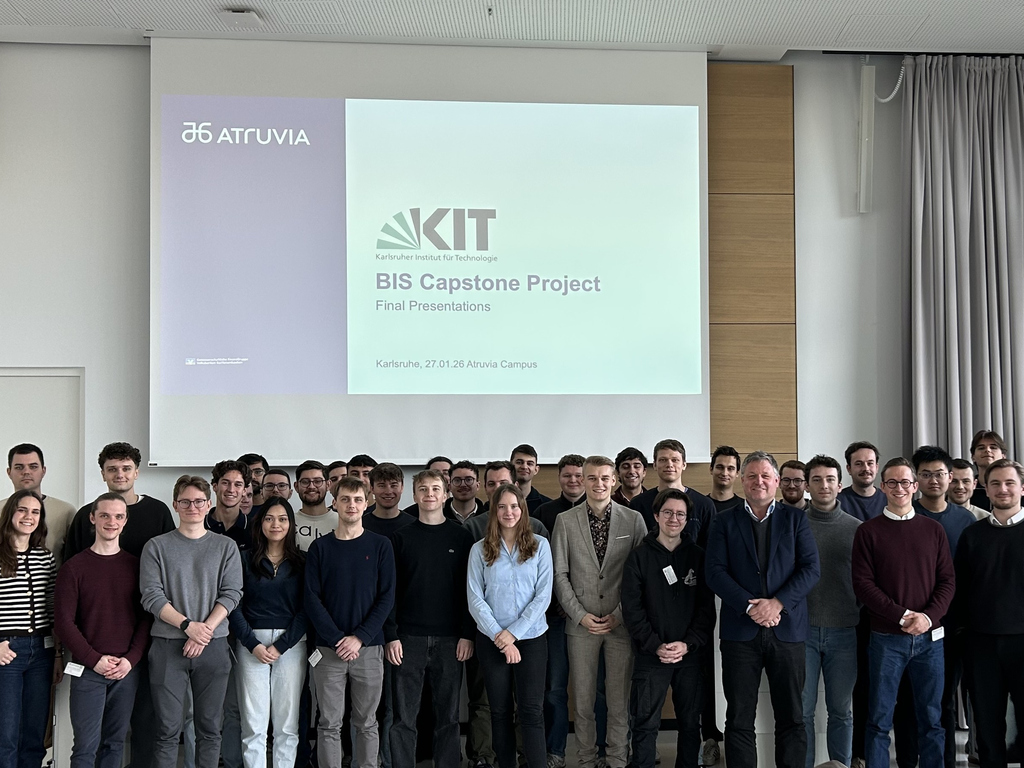
The end of the winter semester 2025/26 also marks the successful end of this year’s Business Intelligence Systems (BIS) capstone project, which is an integral element of the BIS master lecture held by Prof. Dr. Alexander Mädche and Niklas Wagner. 46 students worked in 10 teams on a retail banking business intelligence & analytics case provided by our industry partner Atruvia, the IT service provider for Germany’s cooperative banks. The capstone project empowers students in collecting hands-on experiences in using and applying state-of-the-art Business Intelligence & Analytics (BI&A) technologies such as the Databricks platform and in parallel build up transferable skills (e.g., communication, team collaboration, etc.).
More
On January 12th 2026, Ekta Narang from SAP SE Supply Chain Management gave an industry talk in our bachelor lecture “BWL | Information Systems”. In her talk, she highlighted the current "value gap" in AI adoption, where significant investment often yields low returns due to disjointed data, siloed solutions, and organizational complexity. As a response, she presented the concept of “SAP Business AI" that integrates context-rich data, provides unified user experiences, and role-aware AI assistants integrated into business processes.
More
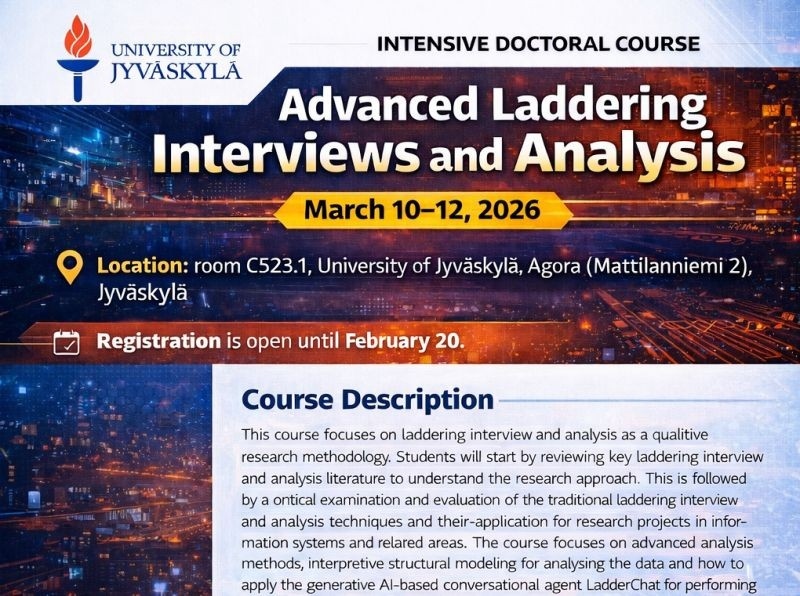
The INFORTE.fi programme is hosting an "Advanced Laddering Interviews and Analysis" course from March 10 to March 12, 2026, at the University of Jyväskylä, Finland. This specialized training introduces participants to the laddering interview technique, an advanced qualitative method used to uncover complex user behaviors and deep-seated values in information systems and service research. The course will be taught by Prof. Tuure Tuunanen and Dr. Juuli Lumivalo from the University of Jyväskylä, along with Prof. Alexander Maedche and Mr. Leon Hanschmann from the human-centered systems lab of the Karlsruhe Institute of Technology (KIT).
More
We would like to wish all our students and partners a Merry Christmas and a Happy New Year. Thank you for the inspiring and fruitful cooperation throughout 2025. We look forward to continuing our successful collaboration in the coming year and wish you a joyful holiday season and a great start into 2026.
We will discontinue on-site operations between Tuesday, December 23rd, 2025 to Tuesday, January 6th, 2026. From Wednesday 7th, 2026 the regular opening hours will apply again.
More
Artificial intelligence (AI) is a transformative force, upending teaching and learning, science, and the working environment. In issue 04/2025 of the lookKIT magazine, Dr. Julia Seitz, Thimo Schulz from the Institute for Information Systems (WIN) report on the MenschKI! project focusing on understanding and designing the interaction between humans and AI for productivity and well-being. Furthermore, Dr. Florian Kuhlmeier presents our research in the field of Mental Health Therapy Companions.
More
Complex software-based systems consist of a multitude of elements that interact in various ways. This includes cyber-physical systems like cars, which comprise numerous software and hardware components, as well as software products on which multiple development teams work on different software elements. Consistency problems represent a key challenge in the development of complex software-based systems.
More

